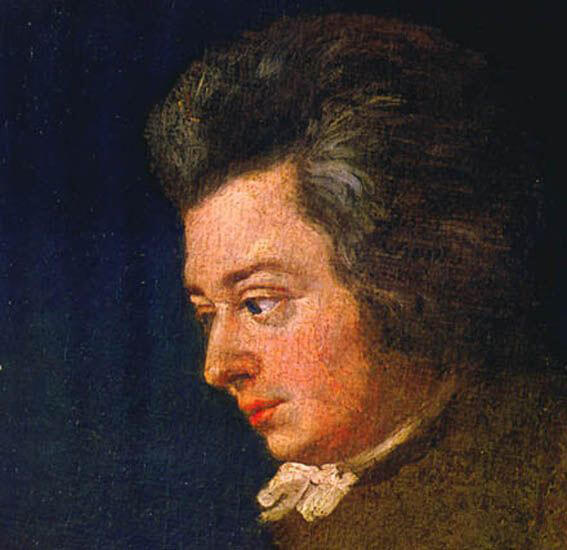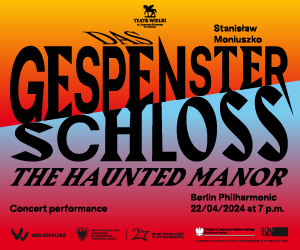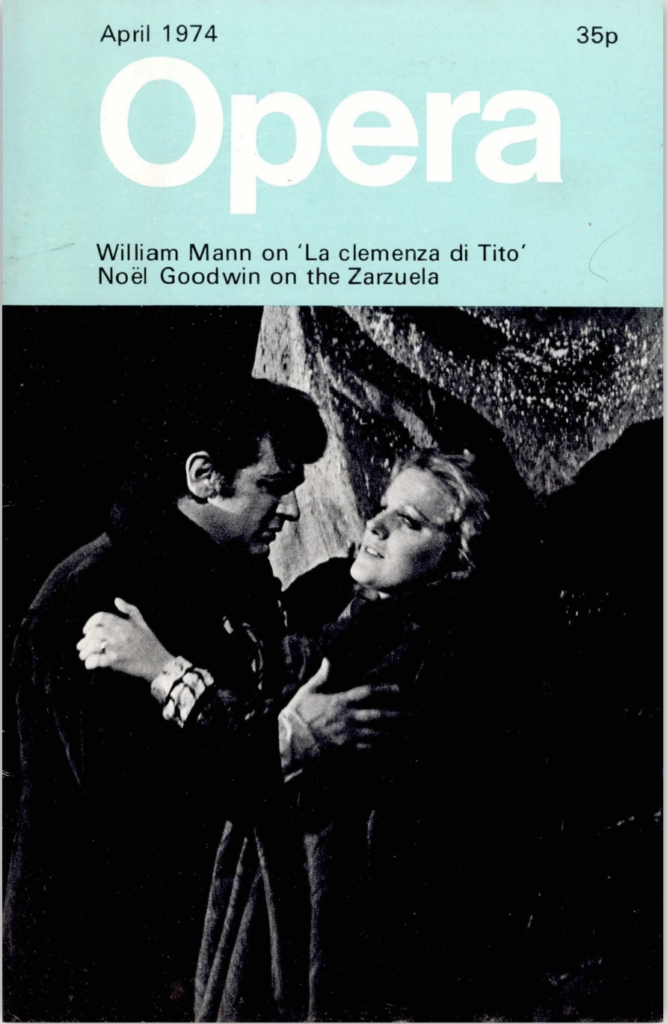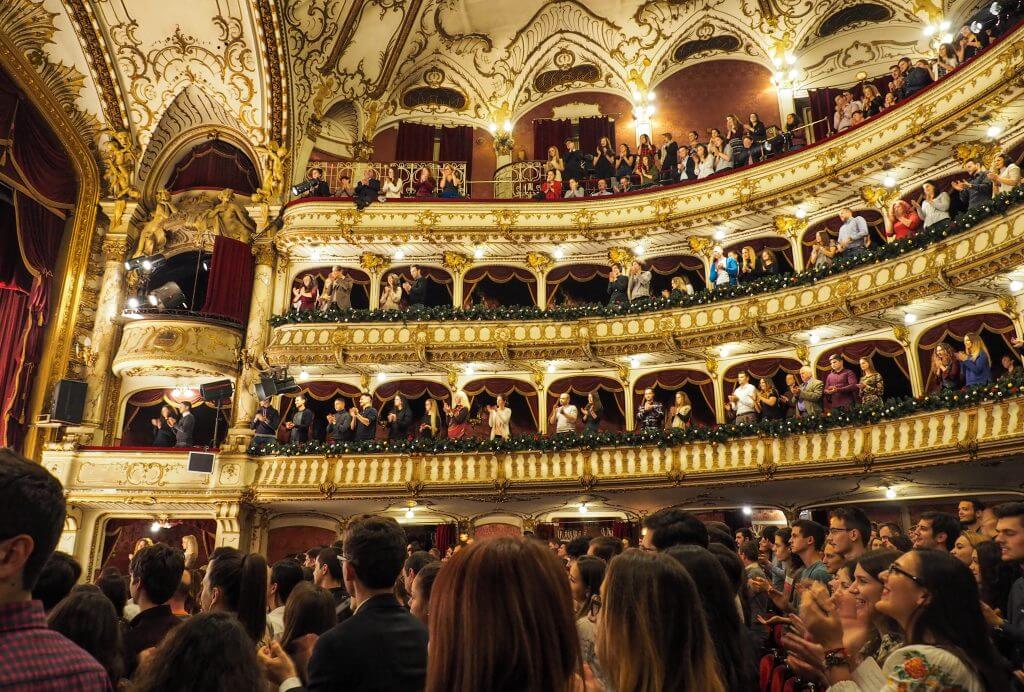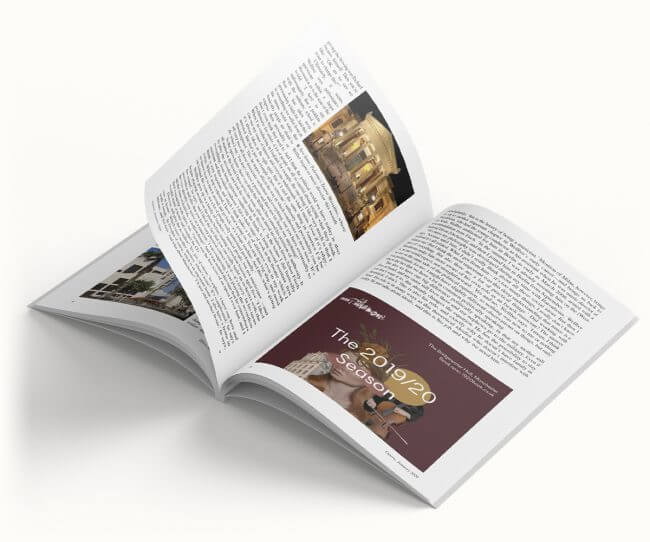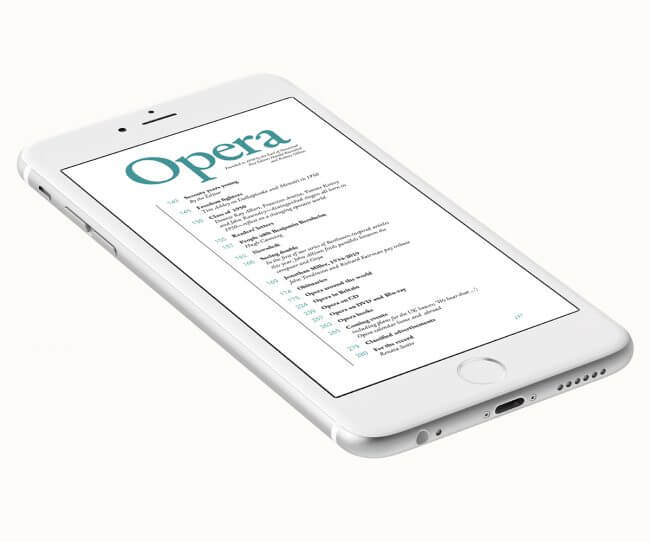The Shock of The New
May 2013 in Articles
Richard Fairman revisits Charles Mackerras’s thoughts on the premiere of ‘Don Giovanni’.
It was towards the end of 2005, just before the 250th anniversary of Mozart’s birth, that I went to interview the late Charles Mackerras. At home in his elegant house in St John’s Wood, London, the veteran conductor could not have been more eager to talk about one of his most beloved composers, hopping up from his chair to check details in his scores or illustrate points at the piano. Everything interested his still-lively mind, but one subject kept coming round and round: what was the premiere of Don Giovanni really like?
For all the research that has been done, our conversation concluded that we are not much closer to experiencing a night at the opera as it might have been in Mozart’s day. Contemporary accounts of the first performance of Don Giovanni are few and far between, but they afford glimpses of a hair-raisingly different atmosphere—chaotic, spontaneous, noisily convivial, like a cross between an end-of-term student production, a high-society soirée and a pole-dancing club.
Frustratingly, the man we really want to hear from tells us almost nothing. Mozart left only a couple of letters that touch upon Don Giovanni, mostly involving the delays to the first performance. As was his custom, he had arrived in Prague with significant sections of the score still to compose: the overture; the entrance of Zerlina and Masetto, together with the chorus and Masetto’s aria; Act 2’s opening duet between Don Giovanni and Leporello; Don Giovanni’s serenade; the graveyard scene; the whole of the finale. He probably wanted to work on these with the singers close at hand so that any changes they demanded could be taken on board.
Only ten days were left between Mozart’s arrival in the city and the proposed first night on 14 October 1787, in which time a new opera of unusual complexity had to be completed and rehearsed—a wildly optimistic deadline to our eyes. Several postponements followed, and Mozart’s letters tell us of his frustration:
‘Everything dawdles along here because the singers, who are lazy, refuse to rehearse on opera days and the manager, who is anxious and timid, will not force them.’
It was Monday October 29 before the premiere finally took place. Given that ‘opera days’ were one day in three, that means Don Giovanni went on stage after a maximum of 16 days’ rehearsal. Sounds too little? Not half: imagine putting on a new opera by Adès or Saariaho under those conditions. The management would have to hand out tranquillizers.
The venue was what is now called the Estates Theatre. There is some confusion over its name in 1787: either the ‘National Theatre’ according to the German-language press (not to be confused with today’s National Theatre, the grand 19th-century opera house on the banks of the Vltava) or the ‘Nostitz Theatre’ after Count Franz Anton Nostitz, who built it in 1783 as the first permanent theatre in the city open to the public. The picturesque building is a landmark on the tourist trail today. In Mozart’s time it seated about 800, with the parterre 17 seats wide and 16 rows deep—about the same size as the old Glyndebourne before it closed. Almost any other opera house today is way too big. A theatre such as the Metropolitan Opera, with a capacity five times larger, or the Grosses Festspielhaus, with a stage width more suitable for wide-screen Hollywood movies, would have left Mozart open-mouthed.
Picture the scene on the night of the premiere. The weather that day was overcast. Crowds had gathered in the street, with the well-to-do entering the theatre under a covered doorway. A bust of Shakespeare looked out over the portal. The performance was due to start at 7pm, but a later account by Mozart’s first biographer, Franz Niemetschek, tells us demand was so great that the box office was forced to close early at 6.30pm. Even those who had tickets could not get to their seats in the scrum. No playbill survives from the opening night, but an announcement for a later performance states that copies of the libretto were on sale, in Italian only, price 40kr bound in gold paper, or 20kr ordinary. As the acoustics of the theatre were apparently poor, this would have helped the audience keep up with the words.
The popular interest in the new opera should not surprise us. Following the success of Le nozze di Figaro in Prague the year before, Mozart was at the height of his fame. It was almost certainly Figaro’s success that had encouraged him to write Don Giovanni for the same company. Not only could he be confident that Prague audiences would welcome a challenging comic opera with serious overtones, but he already knew the singers in Pasquale Bondini’s small company, which was more stable than most.
One of the facts that so intrigued Mackerras was the ages of the singers. Luigi Bassi, who played Don Giovanni, was 21. Teresa Saporiti, the first Donna Anna, was 24. Although the birth dates of the rest have not been established with certainty, it seems unlikely they were very different. There are student singers at London’s music colleges today who are older. If we want to experience an authentic Don Giovanni, perhaps we should be going to their end-of-term productions rather than the Met or Covent Garden, where revivals in recent years have had Don Giovannis (Thomas Hampson and Simon Keenlyside) pushing 50.
As Mackerras remarked, ‘This is one area where we aren’t being authentic. Even though our singers have tremendous understanding of the style, they don’t have the same kind of voices as [Mozart’s] original singers. People today would complain they had rather small voices and, of course, no vibrato. We can cope with the lack of vibrato where instruments are concerned, but period voices sound so different from the average opera singer that they’ve never caught on.’
Of Bassi’s voice, Niemetschek commented: ‘Its range is between tenor and bass, and although its sound is sometimes bright, it is always flexible, full and agreeable. Bassi is also a very skilful actor, who handles tragedy without being absurd, and comedy without lapses of taste.’
Unfortunately, by the age of 29 his voice was said to be in decline. So much for today’s singers being pushed too fast! For her part, Saporiti was famed for her beauty, but five years earlier a report from Leipzig had described her as ‘a complete beginner as an actress, and halfway so as a singer’. Of course, that in itself tells us something about contemporary expectations. How much did the writer expect of a singer who was then only 19?
Still, whatever experience these youthful singers were lacking, they could always rely on a bit of extemporizing to see them through. People close to the Prague premiere tell us clearly that there was not enough time to learn such a complex new opera thoroughly. Mackerras reckoned the first Don Giovanni would have felt rather like a jazz evening, where improvisation is an important part of creating new music. He pioneered performances of Mozart’s operas with stylish ornamentation—Le nozze di Figaro at Sadler’s Wells Opera in 1965 marked a turning point—and almost half a century later the results still challenge our preconceptions. For a sample, try Mackerras’s Opera Rara disc entitled ‘Mozart the Supreme Decorator’, which contains arias with embellishments in Mozart’s own hand, taken from manuscripts at the British Library. There is nothing from Don Giovanni, but the highly florid versions of other operas give a good idea of what 18th-century audiences might have heard. Present-day singers never get within a mile of them.
Nor were the words written in stone. We know Lorenzo Da Ponte was called back to Vienna before work on the opera was finished, and one of the great unknowns is how far a last-minute helping hand may have been lent by his friend Giacomo Casanova. A copy of a draft of a section from Act 2 in Casanova’s hand can be seen at the Figarohaus in Vienna, evidence perhaps of the rush to get the opera finished in time. One of the most illuminating contemporary reports about Don Giovanni comes from Luigi Bassi after he appeared in a later production in Dresden:
‘[The supper scene] lacked the liveliness, the freedom, that the great master wanted in this scene. [In Prague] we didn’t sing this scene the same way two evenings running. Without keeping strict time, we cracked jokes—new ones every night—and just kept a careful eye on the orchestra. Everything was virtually spoken, as if we were improvising, as that is what Mozart wanted.’
In other words, they made it up as they went along. And encores, too, would have added to the general air of spontaneity. When Die Entführung aus dem Serail was first performed, Leopold Mozart writes that three numbers had to be repeated. There is no reason to suppose that the highly successful premiere of Don Giovanni was any different.
There remains the question of how well any of the performers knew the opera. Despite the date having being postponed twice, it seems that the story about the overture being finished only the night before the dress rehearsal is true:
‘At seven in the evening, when the opera was to begin, the copyists were still working on the parts, so one had to wait, and only at a quarter to eight were the orchestra parts brought into the pit, still strewn with sand, and Mozart also arrived to direct this first production.’
Mozart was later quoted as saying that the sight-reading of the overture had been an extraordinary feat even if ‘several notes fell under the desks’.
All the evidence suggests that Mozart had a high opinion of Bondini’s orchestra, even though it was part-time and all its members had other jobs elsewhere. Its size was relatively small—never more than 30, compared to around 40 at the Vienna Burgtheater or 60 for Mitridate at the Regio Ducal Teatro in Milan—but Mozart wrote complex parts for these players presumably because he knew from Figaro that they could manage them. Some reports suggest that the orchestra was better than the one in Vienna, especially ‘the wind instruments, of which the Bohemians are well known to be decided masters’.
Mackerras, however, felt that this prowess needed to be seen in context. The wind parts that Mozart wrote for Don Giovanni would have been difficult to play in tune. Also a Handel expert, Mackerras pointed out that Handel sometimes wrote a piece in an extreme key intentionally because he wanted it to sound out of tune, and he believed that Mozart would similarly have planned for out-of-tune wind playing. His suspicion is borne out in Charles Burney’s Eighteenth-century Musical Tour in Central Europe, where Burney tells us of a visit to Mannheim a few years earlier in 1772:
‘I found, however, an imperfection in this band, common to all others, that I have ever yet heard … the want of truth in the wind instruments. I know it is natural to those instruments to be out of tune, but some of that art and diligence which these great performers have manifested in vanquishing difficulties of other kinds, would surely be well employed in correcting this leaven, which so much sours and corrupts all harmony. This was too plainly the case to-night, with the bassoons and hautbois, which were rather too sharp, and continued growing sharper to the end of the opera.’
If this was true of the celebrated Mannheim orchestra, it probably was of Prague, too. Do you fancy acid wind-tuning at the Royal Opera House? No, neither do I.
In this period it was customary practice for the librettist to act as director of the production, as he was judged to know the work best. As Da Ponte had already departed for Vienna, it may be that Casanova stepped into that role, too. The sets would have come from stock, but Bondini’s company had a good reputation and the production was regarded as handsome according to the standards of the day. The only visual record known to survive is an engraving of Luigi Bassi in costume as Don Giovanni singing his Serenade in the street outside a lighted window (see p. 277), though it is unlikely this was intended as an exact representation of the original.
Whatever else the production was, it would certainly have been gloomy. In describing a gala performance of Figaro at the same venue a couple of weeks earlier, Mozart specially mentions the ‘fully lighted theatre’ in one of his letters. This was no throwaway remark. Lighting was at a premium, with only candles for the orchestra and much of the stage area left in the dark. (If only ENO had left the stage in the pitch black for their ghastly recent effort.) This is why librettists often included scenes for actors bearing torches. Da Ponte provided several in Don Giovanni—the arrival of Donna Anna and Don Ottavio at the opening, the nocturnal Serenade, the sextet in Act 2, the graveyard scene, and probably also the finale, in which servants would have illuminated Don Giovanni’s dining hall.
How many in the audience could see the production in the gloom? How many even cared? From a 21st-century standpoint we blissfully assume that everybody present on such a historic occasion would have been gripped with excitement. Of course, they did not know it was historic at the time, but the widespread lack of interest they showed in the opera would have left sensitive souls such as ours outraged. A report from Prague, dating from 1787, tells us that only a minority of the 800-strong audience at the National Theatre generally went to be entertained. The rest were there to kill time and they created a racket throughout the theatre:
‘The chatting of some could, to be sure, be excused by the fact that not much can be heard in most of the boxes, and that they must therefore entertain themselves; and it is all the same to them whether those beneath them, who must carefully prick up their ears, hear their often interesting conversation or that of the actors … Even at moments [in the performance] that are spoken loudly and with strong feeling, they do not turn round to see what circumstance has brought this about. But in most boxes … backs remain turned to the stage, and conversation is uninterrupted.’
Meanwhile, in the stalls, people would come and go noisily, sometimes two or three times in a single act. The theatre was a very sociable place in the 18th century and that made it an ideal hunting ground for ‘gentlemen seeking conquests’, whose sole purpose as opera-goers was to eye up the female singers with a view to getting better acquainted with them afterwards. This was not a rare occurrence. One high-minded observer derided the practice as ‘nearly universal in everyday life’. Where actresses did hold to high moral standards, they were likely to find themselves getting a frosty reception. Imagine reinstating that tradition now. In need of a female friend for the night? Knock at the stage door and ask if Anna Netrebko or Angela Gheorghiu is free.
For all the trials and tribulations leading up to the opening night, the press reports
of Don Giovanni were excellent. Prague’s Die Oberpostamtzeitung reported on
3 November 1787: ‘On Monday 29th, the Italian operatic company performed Herr Mozart’s eagerly awaited opera Don Giovanni or The Stone Guest. Connoisseurs and musicians alike agree that Prague has never heard anything to equal it. Herr Mozart conducted in person. When he entered the orchestra pit he was greeted with a triple ovation and this was repeated when he left. The opera is extremely difficult to perform and everybody is filled with admiration that despite the very limited time for rehearsals the performance was so good … A great deal of expenditure was necessary for the chorus and scenery, which Signor Guardasoni provided to perfection. The exceptional number in the audience bespeaks the general appreciation.’
What would we have thought of it? Here was the premiere of one of the greatest operas of all time, given by a part-time orchestra which had hardly had time to learn the music and a cast of singers only just out of their teens who improvised their parts as they went along. The majority of the audience happily ignored the entire event and even those who were paying attention most likely had their eyes fixed on Donna Anna’s cleavage. A truly authentic production would certainly be an eye-opener today.
Intriguingly, there is one last question that remains to be answered. The playbill tells us that these performances of Don Giovanni were timed to begin at 7pm and be over by 9.30pm. Even Mackerras gasped at that. How on earth did they get through it so quickly?



